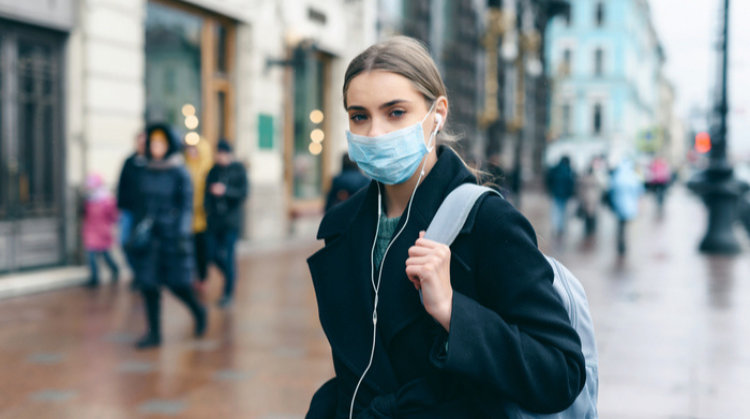The language of masked communication

Have you found yourself squinting at people in the supermarket to indicate a smile behind the mask you are now required to wear? Dr Marina Cantarutti, Interactional Linguist and Research Associate at The Open University, suggests that whilst some of the nuance of our interactions may be lost behind face coverings, people may find ways to compensate for this in interaction.
Wear a mask
It is now compulsory to wear a face covering in many indoor settings in all four Nations of the UK. Along with many other changes we have had to adapt to over the past few months such as social distancing and regular hand-sanitising, we are having to get used to communicating non-verbally to others with a significant part of our face covered.
Covering the lower half of the face reduces the ability to communicate, interpret, and mimic the expressions of those with whom we interact. Positive emotions become less recognisable and negative emotions can be amplified. Face masks can impair our positive social interactions and ability to empathise with one another. Equally, when people want to hide their emotion, if they are upset or angry, they can use the mask to shield themselves from unnecessary interactions about their feelings.
Without words
Dr Cantarutti says she hopes at some point to be able to collect interactional data 'in the wild' and provide precise findings. For now, she has been studying people’s mask-wearing interaction whilst out-and-about and notes, “It is possible that a greater array of multi-modal resources will be used beyond the eyes in ways in which they are normally used, but now with intensified features: we may squint noticeably as we smile behind the mask, we may produce more extreme head movements, nod more vigorously to display agreement, produce head tilts for sympathy, or use hand gestures with wider or bouncy movements.”
Most of us rely on facial expressions far more than we realise and this is particularly true if there’s a verbal language barrier. “We can try to secure certain kinds of affiliative response in alternative ways”, says Dr Cantarutti. “For example through the repetition or reformulation of feelings or events reported in previous part of our conversation, done again more vividly with hand gestures or features of the tone of voice.”
If face-coverings turn out to be a long-term adaptation we learn to live with, perhaps, in time, an eyebrow raise will be worth “a thousand words”.
Are you already an OU student?
Request your prospectus
Explore our qualifications and courses by requesting one of our prospectuses today.
Request prospectus